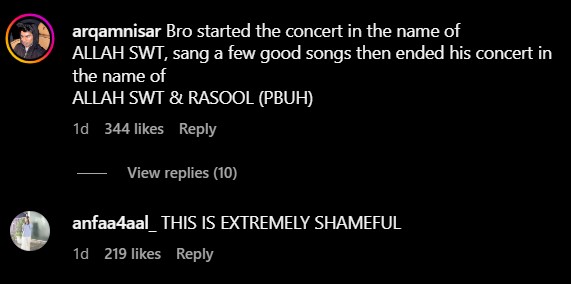
Hyderabad: Popular Pakistani singer Atif Aslam, known for his versatility across genres like Sufi, Qawwali, and Bollywood romantic tracks, has found himself at the center of controversy following his latest concert at the SEC Armadillo in Glasgow, Scotland.
While the singer has enchanted fans for over two decades with hits like Dil Diyan Gallan, Tere Sang Yaara, and Tu Jaane Na, his recent performance has sparked criticism from some fans who found his mixing of religious and romantic songs inappropriate.
Atif, who is also known for captivating live performances, is said to have began his concert with religious tracks, including the popular Qawwali Allah Hoo, and later transitioned into romantic and Punjabi songs.
Clips from the concert shared online show Atif reciting naat ‘Aye Khatm-e-Rasool’ before shifting to his popular romantic songs, which many fans on social media deemed “disrespectful.”
In one viral clip, Atif can be seen performing ‘Allah Hoo’ and then suddenly switching to the upbeat Punjabi song ‘Mundiyan To Bach Ke’. This juxtaposition of religious recitations and secular songs during the same event has not sat well with many of his followers.
Some fans took to social media to express their discontent, calling his performance “disrespectful” and “shameful.”
One fan commented on Instagram, “I am a fan of Atif Aslam but he should change his strategy to not mix two totally different things at the same time.” Another wrote, “THIS IS EXTREMELY SHAMEFUL.”
One particularly critical user remarked, “Even Shaitan is confused,” while another wrote, “We shouldn’t idolize someone so much that we become blind to their wrongdoings. As a Muslim, singing and reciting Quran/Naats on the same platform with romantic songs shouldn’t be acceptable at all. It was a singing concert, and alcohol was allowed there as well. As someone who calls himself a living legend, he should act accordingly.”









Check out his more clips from the same concert.
Atif Aslam has not yet responded to this criticism. His fan base, however, remains divided, with many defending the singer’s artistic expression while others urge him to reconsider the blending of religious and secular content in his concerts.
